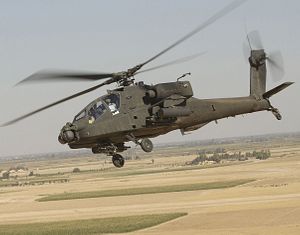The United States, on Thursday, approved two possible Foreign Military Sales for the Philippines. According to the Defense Security Cooperation Agency (DSCA), the U.S. Department of State notified Congress that two possible sales of military helicopters were approved.
One possible sale concerns six AH-64E Apache helicopters and associated support equipment. Another concerns six AH-1Z Viper attack helicopters and related equipment. The value of the estimated AH-64E sale is $1.5 billion; the AH-1Z sale is estimated to cost $450 million.
According to the DSCA, the government of the Philippines is considering one of the two packages and will not purchase both. “The Philippines is considering either the AH-64E or the AH-1Z to modernize its attack helicopter capabilities,” the DSCA noted.
The Philippines armed forces would incorporate the proposed attack helicopters for use in counterterrorism and critical infrastructure protection missions. The United States has supported the Philippines in counterterrorism in recent years, including with logistical and intelligence support.
In the broader Southeast Asian region, the armed forces of the Philippines remain one of the least capable overall. Last December, Boeing, the manufacturer of the AH-64E, announced that it would be offering the helicopters to the Philippine Air Force, alongside the CH-47F Chinook.
The AH-64E Apache is a twin-seat, twin-turboshaft attack helicopter. The E variant is a recent upgrade, expanding the engine, armament, and on-board connectivity capabilities. The E variant is capable of controlling unmanned aerial vehicles and has a greater payload capacity along with more sophisticated datalinks.
The AH-1Z Viper is a twin-engine attack helicopter that is smaller than the Apache and a lower payload capacity.
Both proposed sales “will support the foreign policy and national security of the United States by helping to improve the security of a friendly country that continues to be an important force for political stability, peace, and economic progress in South-East Asia,” the DSCA noted in its releases.
The approval of the sales comes amid broader tension in the U.S.-Philippines alliance after Manila, at the direction of President Rodrigo Duterte, moved to terminate the U.S.-Philippines Visiting Forces Agreement, a bilateral agreement that governs the conditions under which U.S. troops can be present in the Philippines. The two countries are treaty allies per the 1951 Mutual Defense Treaty.
The Philippines armed forces have faced a robust counterinsurgency in recent years in the southern part of the country. In 2017, the Armed Forces of the Philippines (AFP) were involved in a months-long siege to free the southern city of Marawi from the hold of armed militants pledging allegiance to the Islamic State.

































